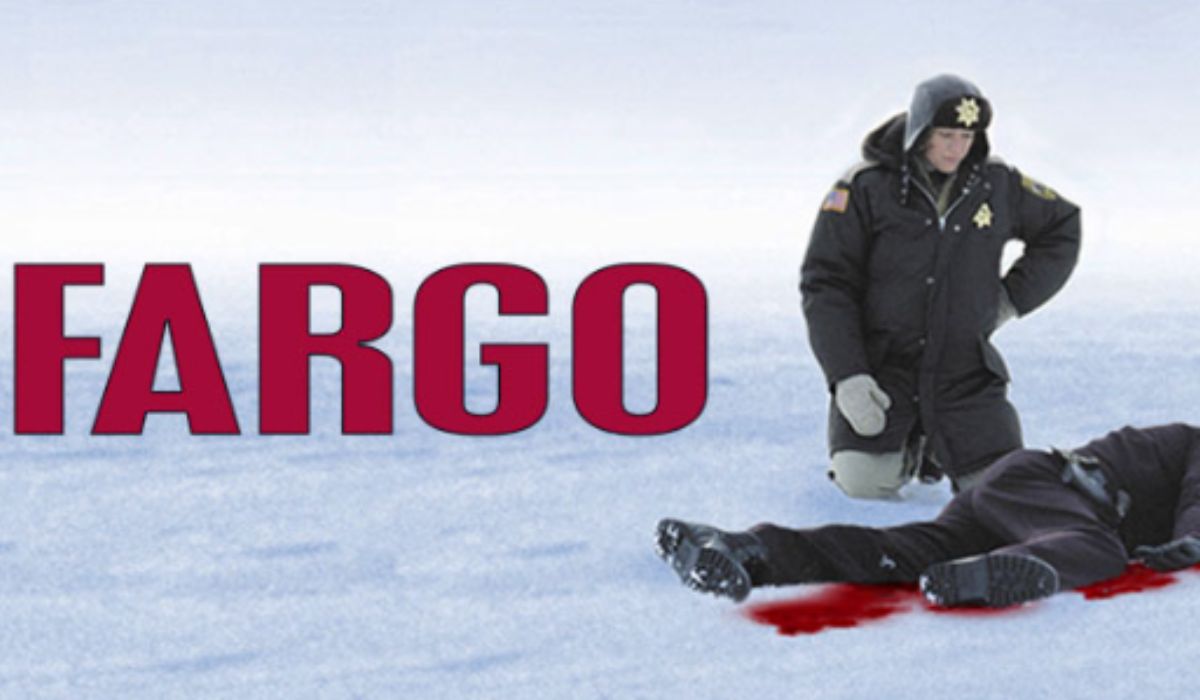The Dark Comedy of “Fargo”: A Masterclass in Crime and Absurdity
- February 17, 2025
- 0
Fargo, a 1996 crime film directed by Joel and Ethan Coen, has become a cinematic classic for its unique blend of black comedy, crime, and the absurdity of
Fargo, a 1996 crime film directed by Joel and Ethan Coen, has become a cinematic classic for its unique blend of black comedy, crime, and the absurdity of

Fargo, a 1996 crime film directed by Joel and Ethan Coen, has become a cinematic classic for its unique blend of black comedy, crime, and the absurdity of human nature. Known for its memorable characters, dry humor, and chillingly dark moments, Fargo remains a standout in the Coen Brothers’ impressive filmography. The film is a chilling yet comedic exploration of crime gone wrong, set against the backdrop of the snow-covered landscapes of Minnesota.
At the heart of Fargo is a seemingly simple plot that escalates into a series of tragicomic events. Jerry Lundegaard (played by William H. Macy) is a desperate and financially troubled car salesman living in Minnesota. To solve his financial woes, Jerry hatches a plan to have his wife, Jean, kidnapped, with the goal of extorting a large ransom from her wealthy father, Wade Gustafson (Harve Presnell). To carry out the crime, Jerry hires two criminals—Carl Showalter (Steve Buscemi) and Gaear Grimsrud (Peter Stormare)—who are anything but competent in their roles as kidnappers.

Unsurprisingly, the crime goes awry from the start. The two criminals, despite their violence and cold demeanor, lack the intelligence and precision needed for the job. From botched plans to senseless violence, their lack of expertise sets the stage for disaster. The situation grows increasingly out of control, culminating in a brutal triple homicide and a growing body count.
Enter Marge Gunderson (Frances McDormand), the pregnant police chief of Brainerd, Minnesota. Marge is assigned to investigate the murders, a seemingly routine case that soon leads her to uncover a tangled web of lies, deception, and increasingly bizarre criminal activity. Marge, in her no-nonsense, calm demeanor, contrasts sharply with the chaotic and absurd actions of the criminals, making her the perfect foil to the madness that ensues.
What makes Fargo truly stand out is how it explores the idea of crime and its consequences. The Coen Brothers expertly craft a story where criminal acts are portrayed not as glamorous or thrilling but as inherently flawed and doomed to fail. Jerry Lundegaard, despite his initial desperation, lacks the cunning to carry out a successful crime, and his bungling leads to his own downfall. His poor decision-making and reliance on the incompetence of others make him a tragic figure, but the Coens balance this with absurd humor, turning Jerry’s desperation into a dark comedy of errors.

Carl and Gaear, the criminals Jerry hires, further highlight the theme of incompetence in crime. These two characters are emblematic of the Coens’ style—brutal yet funny, and disturbingly ineffective. Their violent tendencies and apparent lack of intelligence create a sense of absurdity that is both horrifying and humorous. In many ways, Fargo can be seen as a critique of the overused trope of the professional criminal, showing instead that crime, when committed by unqualified individuals, is often nothing more than a chaotic mess of failure.
Also Read: Game of Thrones: A Deep Dive into the Epic Saga of Power, Politics, and Family
Additionally, the film presents a sharp commentary on the randomness and absurdity of life. The characters in Fargo appear trapped in a cycle of senseless violence, and their actions often seem to have no higher meaning or purpose. This nihilistic undercurrent is tempered with the mundane, everyday interactions of the residents of Minnesota, who are mostly portrayed as polite and humble. The contrast between the violence and the ordinariness of the characters’ lives is what gives Fargo its unique tone.
One of the most enduring aspects of Fargo is Frances McDormand’s portrayal of Marge Gunderson. McDormand’s performance as the pregnant police chief is nothing short of iconic, and her character has become a symbol of integrity and determination in the face of absurdity. Marge is smart, level-headed, and unflappable, even as the crime around her spirals out of control. Her calm demeanor, paired with her strong sense of justice, allows her to cut through the chaos and solve the crime, despite the lunacy of the situation.

Marge’s famous line, “You betcha,” has become a hallmark of the film’s Minnesotan culture, further adding to the quirky charm of her character. McDormand’s portrayal of Marge is a perfect example of how the Coen Brothers use subtle humor to enhance their films. Marge’s mundane and practical approach to solving the crime—despite the increasingly bizarre events surrounding her—gives the film a grounded, relatable quality.
The visual style of Fargo is equally important in shaping the film’s darkly comic atmosphere. The Coen Brothers, alongside cinematographer Roger Deakins, create a striking contrast between the cold, white landscapes of Minnesota and the dark, violent acts taking place. The vast, snow-covered wilderness adds a layer of isolation and desolation to the story, making the characters’ actions seem even more absurd and out of place.
The film’s soundtrack also plays a significant role in its tone. The use of sparse, eerie music heightens the tension, while occasional moments of whimsical, upbeat tunes underscore the absurdity of the events unfolding. This combination of tension and absurdity is a hallmark of the Coen Brothers’ filmmaking style.
Fargo is a masterclass in blending crime, comedy, and absurdity. It is a darkly humorous exploration of human nature, crime, and the consequences that follow when things inevitably go wrong. Through its unforgettable characters, sharp writing, and meticulous direction, Fargo remains one of the most unique and influential films of the 1990s. The Coen Brothers’ ability to merge the mundane with the macabre, all while maintaining a sense of dark humor, ensures that Fargo will remain a cinematic touchstone for years to come.